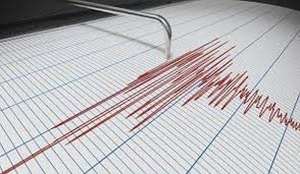• Average daily turnover for the bond market fell to 1.7 million lei this year, down from 10 million lei in 2010
• Dragoş Dărăbuţ: Credit instruments are influenced the most by the evolution of the NBR"s policy rate
"Piraeus Bank" România will provide market making services for Romanian government bonds, for the first time in Romania, starting with July 1st, 2011, according to Alin Barbu, deputy managing director of the Bucharest Stock Exchange (BVB).
Antonio Fluş, head of Capital Markets at "Piraeus Bank", said: "In the beginning, we will quote three securities, namely bonds with a 3-,4-, and 5-year maturities, and in the near future, we will be providing quotes for all the 20 ISINs (ed. note: government bonds)".
Government benchmark-type bonds that will be traded via "Piraeus Bank" have the following symbols: B1307A, B1504A, B1604A.
Antonio Fluş added: "These initial market making terms are subject to improvement". According to him, by the end of the year, the bank would be providing quotations for all the securities with better terms, such as lower spreads and several trading sessions with prices kept at the same level.
Mihai Chişu, broker at "IFB Finwest", considers that the idea of a market maker for bonds is a good one, and will most likely be a positive factor for the bond market. He added that, nevertheless, the major issue of that specific market is the very low liquidity, as investors are almost non-existent, and most of the time, the only trades are coming from investment funds that are liquidating certain positions. A solution that many market participants agree with would be for a tranche of government bonds to be sold exclusively through the stock exchange, he said. Mihai Chişu said that the tranche in question should be aimed predominantly at smaller investors who are interested in bonds. According to him, the success of such an approach will depend first and foremost on how well it will be marketed and publicized. Mihai Chişu said: "Unless retail investors are attracted to the stock market by providing them with an alternative to bank, I do not think that the Romanian bond market will see much improvement over its current state, in which it is basically non-existent."
Antonio Fluş considers that most of the interest in buying government bonds will come from institutional investors. He said that at this time, he is unable to predict how much interest this news would engender from retail clients.
Mr. Fluş said that one of the reasons that "Piraeus Bank" entered a partnership with the BSE is because it wants to cover all the trading channels, the OTC market regulated by the Central Bank, as well as the regulated market of the BSE. According to him, the securities were selected based on their long maturities and low liquidity. Antonio Fluş said that the fact that "Piraeus Bank" was not present in the chart of bond issuers this year was due to its focusing on significant investments (infrastructure, software, staff) as well as due to changes in its capital market activities.
The market making service for stocks appeared in 2008 (coinciding with the listing of Erste on the BSE), and market making for futures appeared in 2009.
The BSE has 21 government bonds, of which 11 of the benchmark type (ed. note: bonds with maturities larger than 1 year). Alin Barbu said that bonds with maturities of less than 1 year are instruments which are specific to the money market and aren"t traded by capital market investors at the moment.
The value of bonds (Municipal, Corporate and Government) transferred this year was about 222.5 million lei, as opposed to 5.47 billion lei for stocks and just 12.8 million lei for futures.
Dragoş Dărăbuţ, financial analyst at "Tradeville", said that the statistics of the BSE for 2011 indicate a major drop in the average daily turnover on the bond market, from 10 million lei in 2010 to 1.7 million lei in 2011. He added that, during the same period, daily volume in stocks nearly doubled compared to last year, as investors opted in favor of riskier investments, to an extent. Dragoş Dărăbuţ says that credit instruments are influenced the most by the evolution of the NBR"s policy rate. He added that since May 5th, 2010, the NBR has kept the interest rate at 6.25%, which is why over the past year the bond market hasn"t seen much volatility. Dragoş Dărăbuţ said: "It is hard to tell how the bond market will go until the end of the year, but the development of the local bond market would be a good thing for investors, allowing them to keep some of their portfolios in fixed income assets, which are less risky".



























































